detail profile paul robeson
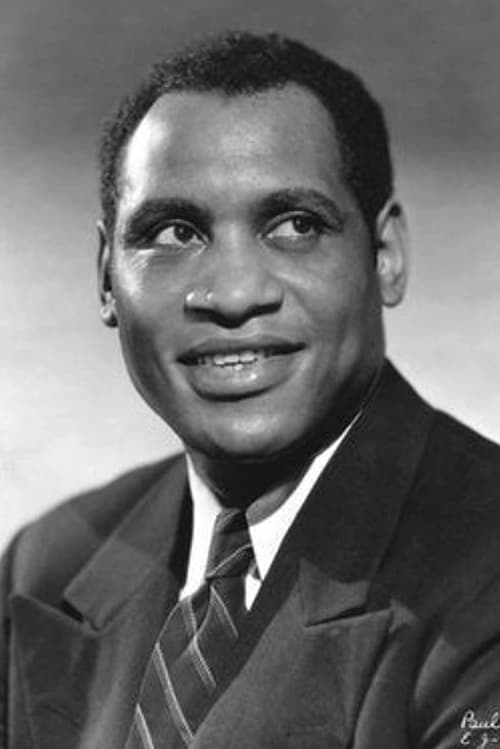
Paul Robeson
Paul LeRoy Bustill Robeson
atau dikenal sebagai
Riwayat Hidup
Paul Robeson (April 9, 1898 - January 23, 1976) was an American concert bass-baritone, athlete, actor and political activist.
Born in Princeton, New Jersey he was educated at Rutgers College and Columbia University Law School.
After briefly practising as a lawyer he left the trade due to racism and instead pursued his acting and singing career.
Info Pribadi
Peran Yang Di Mainkan Paul Robeson
 The top 100 songs of the past 100...
The top 100 songs of the past 100...AFI's 100 Years... 100 Songs: America's Greatest Music in the Movies 2004
The top 100 songs of the past 100 years chosen by the American Film Institute are presented by host-actor John Travolta.
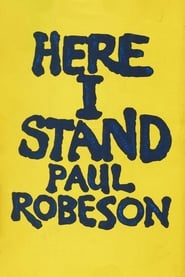 Paul Robeson Here I Stand presents...
Paul Robeson Here I Stand presents...Paul Robeson: Here I Stand 1999
Paul Robeson: Here I Stand presents the life and achievements of an extraordinary man. Athlete, singer, and scholar, Robeson was also a charismatic champion of the rights of the poor working man, the disfranchised and people of color. He led a life in the vanguard of many movements, achieved international acclaim for his music and suffered tremendous personal sacrifice. His story is one of the great dramas of the 20th century, spanning an international canvas of social upheaval and ideological controversy.
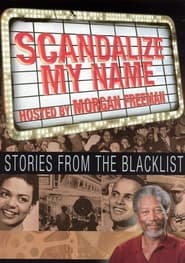 A look at the confluence of...
A look at the confluence of...Scandalize My Name: Stories from the Blacklist 1998
A look at the confluence of the Red Scare, McCarthyism, and blacklists with the post-war activism by African Americans seeking more and better roles on radio, television, and stage. It begins in Harlem, measures the impact of Paul Robeson and the campaign to bring him down, looks at the role of HUAC, J. Edgar Hoover and of journalists such as Ed Sullivan, and ends with a tribute to Canada Lee. Throughout are interviews with men and women who were there, including Dick Campbell of the Rose McLendon Players and Fredrick O'Neal of the American Negro Theatre. In the 1940s and 1950s, anti-Communism was one more tool to maintain Jim Crow and to keep down African-Americans.
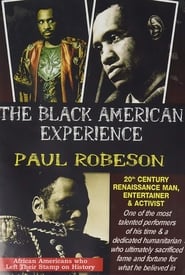 Paul Robeson was a celebrated AfricanAmerican...
Paul Robeson was a celebrated AfricanAmerican...Paul Robeson: 20th Century Renaissance Man, Entertainer & Activist 1994
Paul Robeson was a celebrated African-American Actor, Athlete, Singer, Writer, and Civil Rights Activist. Robeson's many achievements are chronicled in this program, ranging from playing with the NFL to graduating from Columbia Law School, performing on Broadway and in Hollywood films to founding the American Crusade against Lynching as well as Council on African Affairs. Robeson was one of the most talented performers of his time and a dedicated humanitarian who ultimately sacrificed fame and fortune for what he believed in. His association with Leftist Politics during the era of the Cold War, and frequent denouncing of American political parties led to his eventual blacklisting with other prominent writers and artists during the McCarthy Era. His talents in all areas are remarkable, and his dedication to attaining a peaceful coexistence between all the people of the world is truly admirable.
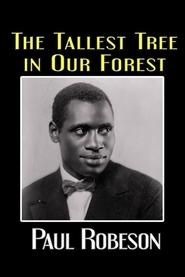 A detailed biography of famed singer...
A detailed biography of famed singer...The Tallest Tree in Our Forest 1977
A detailed biography of famed singer, actor, athlete and activist Paul Robeson. Complete with several interviews and footage of concerts and film clips.
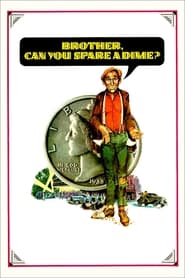 Period music film clips and newsreel...
Period music film clips and newsreel...Brother, Can You Spare a Dime? 1975
Period music, film clips and newsreel footage combined into a visual exploration of the American entertainment industry during the Great Depression.
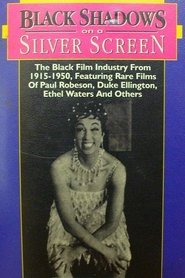 Ossie Davis narrates a history of...
Ossie Davis narrates a history of...Black Shadows on a Silver Screen 1975
Ossie Davis narrates a history of "race films," films made before 1950 which catered to a primarily black audience.
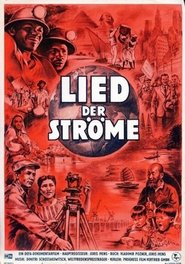 An allegorical documentary about the workers...
An allegorical documentary about the workers...Song of the Rivers 1954
An allegorical documentary about the workers of the world, whose common destinies and hopes for peace are symbolically united by the rivers that run through their respective lands. The film was shot on the Volga, the Mississippi, the Nile, the Yangtze, the Amazon and the Ganges and combines these images of five continents with the music of Dmitri Shostakovich and the poetry of both Bertolt Brecht and Paul Robeson.
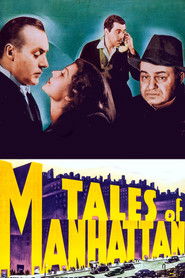 Ten screenwriters collaborated on this series...
Ten screenwriters collaborated on this series...Tales of Manhattan 1942
Ten screenwriters collaborated on this series of tales concerning the effect a tailcoat cursed by its tailor has on those who wear it. The video release features a W.C. Fields segment not included in the original theatrical release.
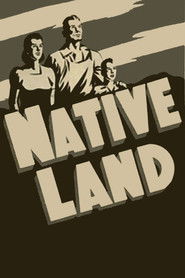 By the start of World War...
By the start of World War...Native Land 1942
By the start of World War II, Paul Robeson had given up his lucrative mainstream work to participate in more socially progressive film and stage productions. Robeson committed his support to Paul Strand and Leo Hurwitz’s political semidocumentary Native Land. With Robeson’s narration and songs, this beautifully shot and edited film exposes violations of Americans’ civil liberties and is a call to action for exploited workers around the country. Scarcely shown since its debut, Native Land represents Robeson’s shift from narrative cinema to the leftist documentaries that would define the final chapter of his controversial film career.
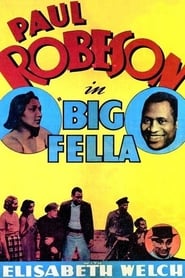 Singing Marseilles docker Joe is hired...
Singing Marseilles docker Joe is hired...Big Fella 1938
Singing Marseilles docker Joe is hired by wealthy English couple, the Oliphants, to find their missing son Gerald. When Joe finds him, he learns Gerald escaped of his own will and takes him to stay with a local singer, who offers a refuge from his repressed white parents.
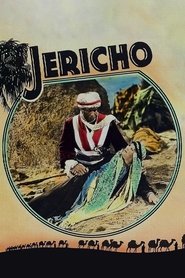 An unjustly condemned corporal flees to...
An unjustly condemned corporal flees to...Jericho 1937
An unjustly condemned corporal flees to Africa, chased by the captain blamed for his escape.
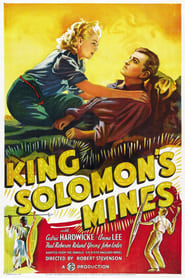 White hunter Allan Quartermain and his...
White hunter Allan Quartermain and his...King Solomon's Mines 1937
White hunter Allan Quartermain and his enigmatic guide help a young Irish woman locate her missing father in unexplored Darkest Africa.
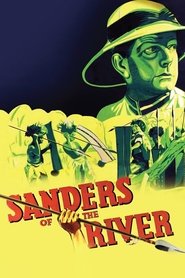 A British District Officer in Nigeria...
A British District Officer in Nigeria...Sanders of the River 1935
A British District Officer in Nigeria in the 1930s rules his area strictly but justly. He struggles with gun-runners and slavers with the aid of a loyal native chief.
 In a Welsh coal mining valley...
In a Welsh coal mining valley...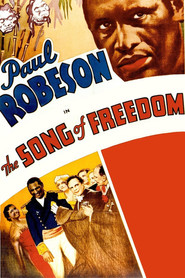 John Zinga a descendent of slaves...
John Zinga a descendent of slaves...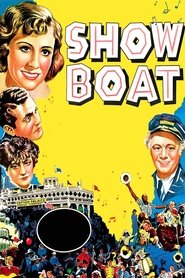 Despite her mothers objections the naive...
Despite her mothers objections the naive...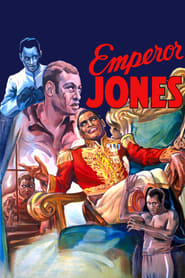 Unscrupulously ambitious Brutus Jones escapes from...
Unscrupulously ambitious Brutus Jones escapes from...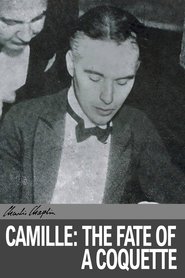 A home movie version of the...
A home movie version of the...